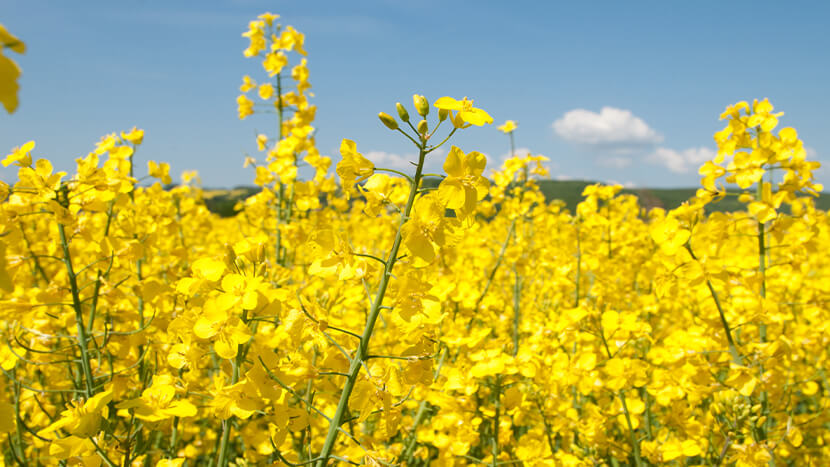Among some crop farmers, it seems, the popularity of rape cultivation is currently rated about as highly as a visit to the dentist. But there are many good reasons to stick with its cultivation. One significant reason is certainly the current price situation.
The price of rape is breaking one record after another. In March it reached an unprecedented all-time high of €525 per tonne. The reasons for this can be found firstly in the price of soya, which is also high, and influences the price of other oilseeds. Secondly, rapeseed oil is globally in short supply: Both the European market and the canola market in the world’s largest grower and exporter, Canada, are sold out. According to the latest estimates from the US Ministry of Agriculture (USDA), global stocks are currently at the lowest level for at least five years.
The interaction of empty warehouses and high demand from both oil mills and on the global market means, in the view of market experts, that this price spike is likely to continue for a while. All the more so since in the 27 EU member states, after the significantly below-average harvest of 2020 (16.1 million tonnes), the area under cultivation for the 2021 harvest (5.16 million hectares) is no greater than the previous year. This means: Even if the yields are higher this year, only a small harvest will be reaped again in the EU. The EU Commission estimated the 2021 harvest at 16.7 million tonnes – averaged over the last five years it was significantly higher (18.5 million tonnes). For Germany, in its initial estimate Deutsche Raiffeisenverband (DRV) expects 3.49 million tonnes, that is even less than the 3.51 million tonnes in the previous year.
In addition, it is still unclear whether crops have suffered any damage from the cold snap in the spring. One thing is clear, however: Rape remains in short supply.
A plea for rape
So much for the market figures. But rape is more than just supply and demand. This member of the brassica family is in many places the only foliage crop left in the crop rotation. Its high preceding crop effect improves subsequent cereal harvests and encourages soil life. The deep root penetration of the soil and the straw left on fields after harvesting places the crop among the humus enrichers.
When in bloom, rape is, at least in the northern German states, the most important source of nectar and pollen for flower-visiting insects. This is good for biodiversity, but also for human food lovers, because a colony of honey bees can collect an impressive 40 kg of rapeseed honey!
The harvested crop is turned into high-quality cooking oils as well as industrial oils, and is also used to manufacture biodiesel and protein-rich animal feed. These products are all of high quality and domestic production – another argument that at least since the start of the Corona pandemic has increasingly entered public consciousness.
However, rape is no sure-fire success: It is attractive to numerous pests, the effective control of which is complicated by resistance and a narrowing spectrum of chemical pesticides. This makes an integrated system of pesticide management that is independent of crop rotations and focuses on agricultural procedures and the observance of breaks in cultivation all the more important.
In the area of fertilization, an intensive analysis of the chances of the crop is worthwhile: Certainly the provisions of the Fertilizer Ordinance require changes to nitrogen fertilizer management, which may result in smaller returns. But: Revenue losses can be offset with higher oil contents, smaller quantities of fertilizer also mean lower costs and varieties with improved nitrogen efficiency can be expected from breeding.
In short: It may not (or no longer) be an easy crop, but with care, modern cultivation methods and agricultural knowledge, rape – which in just thirty years has blossomed into the most important oil plant in Germany – can easily defend its position on the hit parade of crops.



